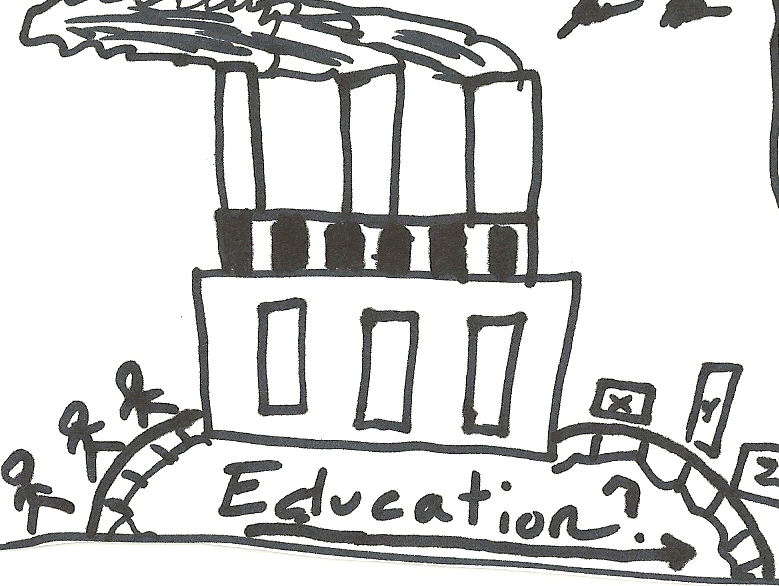A few weeks ago, I read a novel that brought my vision of contemporary American society, and of the Westport bubble in particular, to a series of ugly and contemptible realizations.
My English teacher, Gus Young, assigned Brave New World, by Aldous Huxley, for the class to read.
In Brave New World, one of the elements of the dystopian, future society is that every individual is conditioned to be part of a social caste. The intelligent, privileged elite are referred to as alphas and betas, followed by deltas, gammas, and epsilons in order of decreasing mental capacity. From birth, each citizen identifies with his or her caste, as opposed to people the individual might otherwise enjoy spending time with, and is continually blasted by the government with messages upholding the value of social stratification.
My question is the following: is it really that much different in Westport?
From an early age, we have been told as students that our academic success is crucial to our development as people.
But not necessarily as individuals.
John Dewey, an American philosopher who wrote extensively on the subject of education in the 19th century, once said that “education is not preparation for life, education is life itself.”
With that in mind, I believe that our town and societal elements have conspired to create a toxic environment where individuality is highly discouraged. To me, the concept of something being amiss makes itself evident when everybody who’s serious about schoolwork talks about applying to the same roughly 20 colleges.
That’s it. There’s a sizable contingent of Staples students who work extremely hard for the same lofty, and sometimes self-destructive, goal, plugging away at homework until 1 a.m., all the while hoping to achieve a desirable result.
Staples also has extensive programs for students with disabilities that impede learning, students who need help with organizational skills, and students who need other forms of academic support.
But what happens to a student that doesn’t fall within the respective realms of numerous AP classes and the need for academic support? What if he doesn’t have the specific skillset to elevate his application based upon his prowess on a sports field? What if she wasn’t able to do cancer research in her spare time? Are these people still viable candidates for college and the near future?
I wish I could answer that question. But upon serious reflection, and because I don’t think I’d be able to answer that question even if I was on a college admissions board, I truly have no clue.
There really is no specific place for the average student at Staples. It almost seems like an expectation that if someone succeeds, it is via academics, sports, or ascending the ranks in an extracurricular. Preferably all three. That is the definition of winning around here, and if you fail, society would say that you either were either incompetent or didn’t try hard enough.
A lot of people ask why the youth of Westport has issues. Binge drinking and whatnot. I’d argue that it’s a combination of the fact that a solid 40% of all commercial buildings in this town are banks and liquor stores, and that young people are disillusioned with being treated as lumps of some unknown and dangerous commodity, as opposed to being treated as people.
I think that it’s high time that we were informed that we are individuals, with individual aspirations, individual virtues, and individual visions of the world. I, for one, refuse to be represented by generalizations, anxiety, and a mob mentality that dictates what I am.
Can I add that to my resume?














































